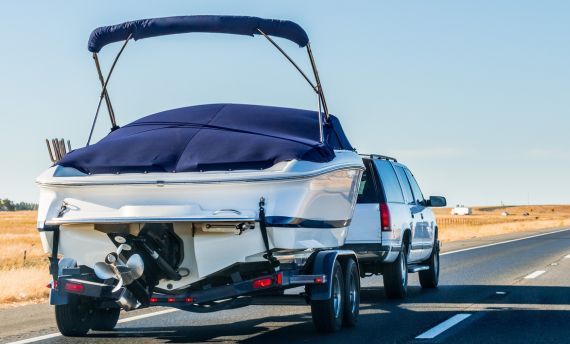
Motorcycles offer a unique blend of freedom and adventure, appealing to many riders across the United States. However, before hitting the open road, it’s crucial to understand the legal requirements surrounding motorcycle insurance, particularly in Pennsylvania. One common question that arises is whether it is possible to insure a motorcycle without having a license or registration. This article delves into the intricacies of motorcycle insurance in Pennsylvania, addressing this question and providing essential insights for prospective riders.
Understanding Motorcycle Insurance in Pennsylvania
Motorcycle insurance is designed to protect riders from financial loss in the event of an accident, theft, or damage to the motorcycle. In Pennsylvania, as in many other states, motorcycle insurance is not just a good idea; it is a legal requirement. However, the specifics of obtaining insurance can vary significantly based on individual circumstances.
The Basics of Motorcycle Insurance
Motorcycle insurance typically includes several key components, such as liability coverage, collision coverage, and comprehensive coverage. Liability coverage is mandatory and protects the rider against claims made by others for bodily injury or property damage resulting from an accident. Collision coverage, on the other hand, helps pay for repairs to your motorcycle after an accident, while comprehensive coverage protects against non-collision incidents, such as theft or vandalism.
In Pennsylvania, riders are required to carry a minimum amount of liability insurance. This requirement underscores the importance of having proper coverage before operating a motorcycle on public roads. Additionally, riders should consider the value of their motorcycle and their personal financial situation when determining the right amount of coverage. Many insurance providers offer various discounts, such as safe rider discounts or multi-policy discounts, which can help make insurance more affordable.
What Are the Legal Requirements for Motorcycle Registration?
Before a motorcycle can be legally operated in Pennsylvania, it must be registered with the Pennsylvania Department of Transportation (PennDOT). Registration involves providing proof of ownership, paying applicable fees, and obtaining a license plate. The registration process is essential not only for legal compliance but also for ensuring that the motorcycle is recognized as a legitimate vehicle on the road. Riders should be aware that registration must be renewed periodically, and failure to do so can result in fines or penalties.
Riders must also possess a valid motorcycle license or permit. This requirement is crucial for ensuring that operators have the necessary skills and knowledge to safely navigate the challenges of riding a motorcycle. In Pennsylvania, obtaining a motorcycle license involves passing a written test and a skills test, which assesses the rider's ability to handle the motorcycle safely. Additionally, many riders choose to complete a motorcycle safety course, which not only enhances their riding skills but may also qualify them for insurance discounts. This proactive approach to safety can significantly reduce the risk of accidents and injuries on the road, fostering a culture of responsible riding within the motorcycle community.
Can You Insure a Motorcycle Without a License?
The question of whether one can insure a motorcycle without a license is a complex one. While technically possible, it presents several challenges and considerations that potential riders should be aware of.
Insurance Companies’ Policies
Most insurance companies require policyholders to have a valid motorcycle license before they can issue a policy. This requirement is primarily due to the increased risk associated with insuring an unlicensed rider. Without a license, the insurance provider may view the rider as a higher risk, leading to potential complications in obtaining coverage.
However, some insurance companies may allow individuals to insure a motorcycle without a license, particularly if they are in the process of obtaining their license or if they have a valid learner's permit. It is essential to communicate openly with insurance agents and inquire about specific policies and requirements. Furthermore, riders should also consider the implications of their state’s laws regarding motorcycle operation and insurance, as these can vary significantly. In some states, having a learner's permit might come with restrictions that could affect the type of insurance coverage available.
Potential Risks and Consequences
Insuring a motorcycle without a license can lead to significant risks. In the event of an accident, the insurance company may deny a claim based on the lack of a valid license. This denial can leave the rider responsible for all costs associated with the accident, including medical bills, property damage, and legal fees.
Additionally, riding without a license is illegal in Pennsylvania and can result in fines, penalties, and even criminal charges. Therefore, it is advisable to obtain a valid motorcycle license before attempting to insure a motorcycle. Beyond the legal repercussions, riding without a license can also affect a rider's ability to gain experience and confidence on the road. Many motorcycle safety courses not only help in obtaining a license but also provide valuable skills that can prevent accidents and enhance overall riding safety. Engaging in such training can be a proactive step toward becoming a responsible and insured rider.
Can You Insure a Motorcycle Without Registration?
Similar to the question of licensing, insuring a motorcycle without registration is also a nuanced issue. While it is possible to obtain insurance for an unregistered motorcycle, it is not advisable and may come with several complications.
Insurance Requirements for Registration
In Pennsylvania, proof of insurance is required to register a motorcycle. This means that if a motorcycle is not registered, it cannot legally be insured. Insurance companies typically require proof of registration before issuing a policy, as this ensures that the motorcycle is recognized as a legitimate vehicle.
Furthermore, without registration, the motorcycle cannot be legally operated on public roads, which adds another layer of complexity to the situation. Riders should be aware that riding an unregistered motorcycle can lead to legal repercussions, including fines and penalties. Additionally, operating an unregistered vehicle can also result in points on your driving record, which may affect your insurance rates in the future.
Options for Unregistered Motorcycles
For individuals who have recently purchased a motorcycle and are in the process of registering it, some insurance companies may offer temporary coverage. This temporary insurance can provide limited protection while the owner completes the registration process. However, this is not a standard practice, and riders should confirm with their insurance provider about the availability of such options.
It is essential to understand that even with temporary coverage, the motorcycle must still be registered before it can be legally operated on the road. Therefore, it is advisable to prioritize the registration process to ensure compliance with state laws. Moreover, riders should also consider the potential risks associated with riding an unregistered motorcycle, such as increased liability if involved in an accident. Without proper registration, the owner may face challenges in filing claims, as insurance companies often require documentation that confirms the motorcycle's legal status. This underscores the importance of ensuring that all necessary paperwork is completed before hitting the road.
Obtaining a Motorcycle License in Pennsylvania
For those who do not have a motorcycle license, the first step towards insuring and legally riding a motorcycle is obtaining the necessary license. Pennsylvania offers a structured process for individuals looking to become licensed motorcycle operators.
Steps to Obtain a Motorcycle License
1. **Obtain a Learner's Permit**: The first step in the licensing process is to obtain a motorcycle learner's permit. This permit allows individuals to practice riding under certain restrictions, such as not riding after dark or carrying passengers. It's essential to familiarize yourself with the rules and regulations associated with the learner's permit, as these guidelines are designed to ensure safety while you gain experience on the road.
2. **Complete a Motorcycle Safety Course**: While not mandatory, completing a Pennsylvania Motorcycle Safety Program (PAMSP) course can significantly enhance riding skills and knowledge. Successfully completing this course may also waive the skills test requirement for obtaining a full motorcycle license. The course covers vital topics such as defensive riding techniques, hazard recognition, and motorcycle handling skills, all of which are invaluable for both new and experienced riders alike.
3. **Schedule a Skills Test**: If not taking the safety course, individuals must schedule a skills test with PennDOT. This test evaluates the rider's ability to operate a motorcycle safely and competently. It's advisable to practice extensively before the test, as the examiner will assess various aspects of your riding, including your ability to execute maneuvers like turns, stops, and emergency braking. Being well-prepared can make a significant difference in your performance on the day of the test.
4. **Apply for a Full License**: After successfully completing the skills test or the safety course, individuals can apply for a full motorcycle license. This process includes providing necessary documentation, paying fees, and passing a vision test. It’s important to gather all required documents beforehand, such as proof of identity and residency, to avoid any delays in the application process.
Importance of Licensing
Obtaining a motorcycle license is crucial for several reasons. First and foremost, it ensures that riders have the necessary skills and knowledge to operate a motorcycle safely. Additionally, having a valid license is a legal requirement in Pennsylvania, and riding without one can lead to serious consequences. Penalties can include hefty fines, points on your driving record, and even the potential for increased insurance premiums.
Moreover, a valid motorcycle license can also positively impact insurance rates. Insurance companies often consider licensed riders to be lower risk, which can result in more favorable premiums. Furthermore, many insurers offer discounts for riders who have completed safety courses, recognizing the commitment to safe riding practices. This not only benefits the rider financially but also contributes to safer roads for everyone, as licensed riders are typically more educated about the risks and responsibilities associated with motorcycle operation.
In addition to the financial and legal benefits, obtaining a motorcycle license can also enhance personal confidence and enjoyment of riding. With the right training and certification, riders can explore Pennsylvania's scenic routes and enjoy the freedom that comes with motorcycle riding, all while knowing they are equipped with the skills necessary to navigate the open road safely. Engaging with local riding communities can also provide support and camaraderie, further enriching the riding experience.
Insurance Options for New Riders
New riders may find themselves overwhelmed by the various insurance options available. Understanding the types of coverage and the factors that influence insurance rates can help in making informed decisions. It’s essential for new riders to take the time to research and compare different policies, as this can lead to significant savings and better protection on the road. Additionally, many insurance companies offer educational resources and tools that can assist riders in understanding their options more thoroughly.
Types of Coverage Available
When shopping for motorcycle insurance, new riders should consider the following types of coverage:
- Liability Coverage: This is the most basic form of insurance and is required by law. It covers damages to other people and their property in the event of an accident. Liability coverage is crucial as it protects you from financial loss if you are deemed at fault in an accident.
- Collision Coverage: This covers damages to your motorcycle resulting from a collision with another vehicle or object. Collision coverage can be particularly beneficial for new riders who may be more prone to accidents as they gain experience.
- Comprehensive Coverage: This protects against non-collision incidents, such as theft, vandalism, or natural disasters. Given the increasing rates of motorcycle theft, comprehensive coverage can provide peace of mind for new riders who invest in their bikes.
- Uninsured/Underinsured Motorist Coverage: This provides protection if you are involved in an accident with a driver who does not have insurance or has insufficient coverage. This type of coverage is especially important in areas where uninsured drivers are prevalent, ensuring that you are not left with hefty medical bills or repair costs.
Factors Influencing Insurance Rates
Several factors can influence motorcycle insurance rates, including:
- Rider Experience: New riders may face higher premiums due to their lack of experience. Insurance companies often view inexperienced riders as higher risk, which can lead to increased rates. However, completing a motorcycle safety course can sometimes help lower these premiums.
- Motorcycle Type: The make and model of the motorcycle can significantly impact insurance costs. High-performance bikes often come with higher premiums. Riders should consider the insurance costs associated with different models before making a purchase.
- Location: Where the rider lives can affect rates, as urban areas may have higher accident rates compared to rural locations. Additionally, local weather patterns and theft rates can also play a role in determining premiums.
- Driving Record: A clean driving record can help lower insurance premiums, while a history of accidents or violations can raise costs. New riders should be mindful of their driving habits, as maintaining a good record can lead to better rates over time.
Moreover, many insurance providers offer discounts for various reasons, such as bundling policies, completing safety courses, or being a member of certain motorcycle organizations. New riders should inquire about these potential discounts when obtaining quotes, as they can significantly reduce overall insurance costs. Additionally, it’s wise to regularly review and update your policy to ensure it continues to meet your needs as you gain experience and your circumstances change.
Finding the Right Insurance Provider
Choosing the right insurance provider is a critical step in ensuring adequate coverage. Riders should consider several factors when evaluating potential insurance companies.
Researching Insurance Companies
Before selecting an insurance provider, it is essential to conduct thorough research. Look for companies that specialize in motorcycle insurance, as they may offer tailored coverage options and better understand the unique needs of riders.
Reading customer reviews and testimonials can also provide valuable insights into the experiences of other policyholders. Additionally, checking the financial stability and reputation of the insurance company can help ensure that they will be able to pay claims when needed.
Comparing Quotes
Obtaining quotes from multiple insurance providers is a crucial step in finding the best coverage at the most competitive rates. Many insurance companies offer online quote tools, making it easy to compare prices and coverage options.
When comparing quotes, it is essential to consider not only the price but also the coverage limits and deductibles. A lower premium may not always be the best option if it comes with inadequate coverage.
Conclusion
In summary, insuring a motorcycle without a license or registration in Pennsylvania is fraught with challenges and potential legal consequences. While it may be possible to find insurance without these prerequisites, it is not advisable. Riders are strongly encouraged to obtain a valid motorcycle license and register their motorcycle before seeking insurance coverage.
Understanding the complexities of motorcycle insurance, the legal requirements in Pennsylvania, and the importance of proper licensing can help ensure a safe and enjoyable riding experience. By taking the necessary steps to comply with state laws and secure adequate insurance coverage, riders can fully embrace the freedom and excitement that motorcycles have to offer.













